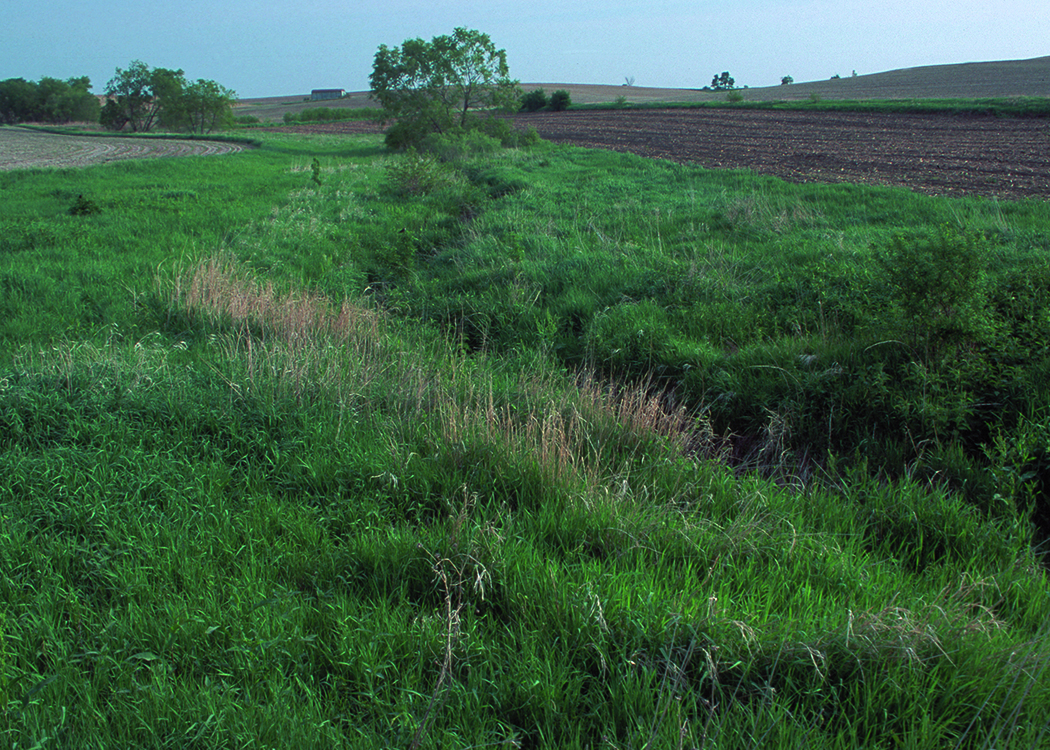
A non-thesis specialization in Conservation Agriculture is now available to University of Nebraska-Lincoln graduate students in the Master of Applied Sciences (MAS) Program.
The interdisciplinary specialization is the first at UNL to explicitly merge natural resources and agricultural issues, said Larkin Powell, who helped launch the initiative.
With support from the School of Natural Resources, the Biological Systems Engineering Department and the Department of Agronomy and Horticulture, students who specialize in Conservation Agriculture will examine how the development, planning and application of land conservation practices can simultaneously benefit agricultural production while also enhancing biodiversity, water quality and other vital ecosystem functions.
“At the Institute of Agriculture and Natural Resources, we are driving toward collaborative approaches to learning that are more than just food production systems or natural systems, but instead integrate learning of both,” said John Carroll, Director of the School of Natural Resources. “That way, our students think more broadly about the ramifications of problems they might be trying to solve. Systems thinking will create opportunities for more creative and interesting solutions.”
Powell said the Conservation Agriculture specialization is modeled in part on a recently developed Rwandan institution that has a direct UNL connection. In 2015, a donor-driven initiative supported undergraduate scholarships for 200 Rwandan students to study conservation-based agriculture at UNL, with the promise to return to Rwanda for at least five years and pursue agriculture sector jobs. A similar initiative has developed the Rwanda Institute for Conservation Agriculture, which Powell and other UNL faculty have partnered with to develop curriculum.
For Rwandans, Powell said, developing conservation agriculture practices can help the country’s many farmers who operate on small parcels of land (two or three acres, often) as they introduce technological developments like irrigation, mechanization and breeding programs to their operations. In the U.S., Powell said, many are looking at developing sustainable agriculture from a different perspective. Large-scale agricultural operations can leave a sizable and lasting ecological footprint on the land they inhabit, as well as on surrounding areas and the groundwater supplies they utilize.
“We're still very interested in water quality issues, in protecting wetland areas and protecting native grasslands and making sure that we are able to produce food and still have landscapes to enjoy and not shoot ourselves in the foot in terms of destroying this natural system,” Powell said. “If we ignore those during the drive to produce food, we are going to be in trouble. I think there are some mirrors (between the Rwandan and UNL conservation agriculture programs) there.”
Powell said he expects that the Conservation Agriculture MAS specialization will attract people who are interested in environmental and ecological consulting positions, as well as professionals who are part of that burgeoning field. According to the U.S. Department of Agriculture, the sustainable agriculture industry is expecting to experience substantial growth.
To learn more about UNL’s Conservation Agriculture specialization, visit the IANR Applied Science website.
Cory Matteson, SNR communications
More details at: https://appliedscience.unl.edu/conservation-agriculture-specialization